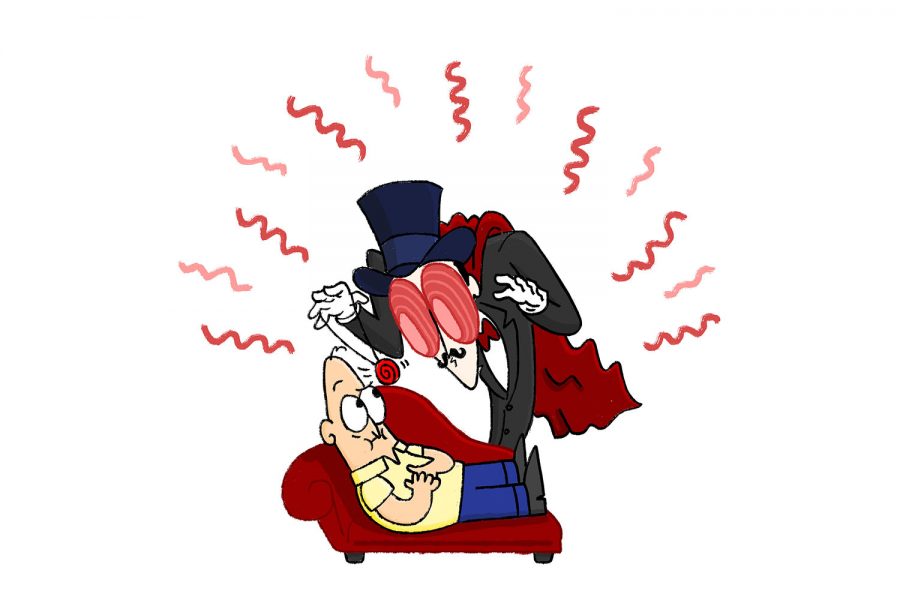Opinion: Therapeutic hypnosis is more than smoke and mirrors
Multiple therapists in Iowa City use hypnosis as a means of treating certain patients.
November 13, 2019
Most people see hypnosis as a stage act where the performer brings audience members to the stage, puts them in a hypnotic trance, and manipulates them to execute silly acts in order to entertain the crowd.
Yet, hypnosis is much more profound than a simple performance. After all, it can be used as a form of therapy, known as hypnotherapy, and it has alleviated many people of their problems. Hypnotherapy can be used to boost self-esteem, treat mental and physical health, and treat addictions.
“I primarily use hypnosis to help clients with anxiety and depression,” said Jeff Whittlesey, a psychotherapist at the Counseling Center of Iowa City. “Hypnosis can be used for symptomatic relief, making short-term psychotherapy more efficient, as well as for unconscious exploration for clients needing more understanding of how they developed problems in order to be relieved of them.”
Clinical hypnosis works by having the patient reach a deep relaxation state to achieve a clinical goal. This is normally achieved by the practitioner using various methods to induce hypnosis.
“At any rate, while the psychotherapy client is in trance, suggestions are given for symptom relief and problem resolution, often including post-hypnotic suggestions for feeling and functioning better after the session,” Whittlesey said.
Angela Amias is a psychotherapist who practices hypnosis at Eastwind Healing Center. She said there are some situations and conditions where hypnotherapy would prove counterproductive or even hurtful to the patient.
“Hypnosis isn’t useful for every problem and there are times when it’s contraindicated,” Amias said in an email to The Daily Iowan. “[An example is] when someone is suffering from a psychotic disorder such as schizophrenia.”
There are also some negative effects that can be triggered from going into hypnosis. Amias explained how patients can recover traumatic memories that may be real or imagined, which can be an upsetting experience for people.
Naturally, after watching an act of stage hypnosis, it is normal for audience members to form preconceived notions about hypnosis, such as the possibility of being stuck in a trance forever or that the hypnotist can make you do anything they want to.
“t’s not actually true that hypnosis has this sort of power,” Amias said. “In fact, we will all come out of hypnosis immediately if the hypnotherapist gives a hypnotic suggestion that doesn’t actually match our goals for ourselves.”
Hypnosis is poorly presented through stage acts. Yet, it is essential to look past the negative stereotypes of hypnosis especially when it has many scientific benefits and can provide relief for many problems we may be going through.
“I believe that hypnosis is an intentional way of tapping into the creative unconscious, which is a master problem solver,” Amias said. “We are all far more brilliant creative problem solvers than we realize when we are overusing our thinking, rational, logical minds.”
Columns reflect the opinions of the authors and are not necessarily those of the Editorial Board, The Daily Iowan, or other organizations in which the author may be involved.
[related title=”More in Opinions” stories=”138168,138166″ align=”center” background=”off” border=”bottom” shadow=”off”





